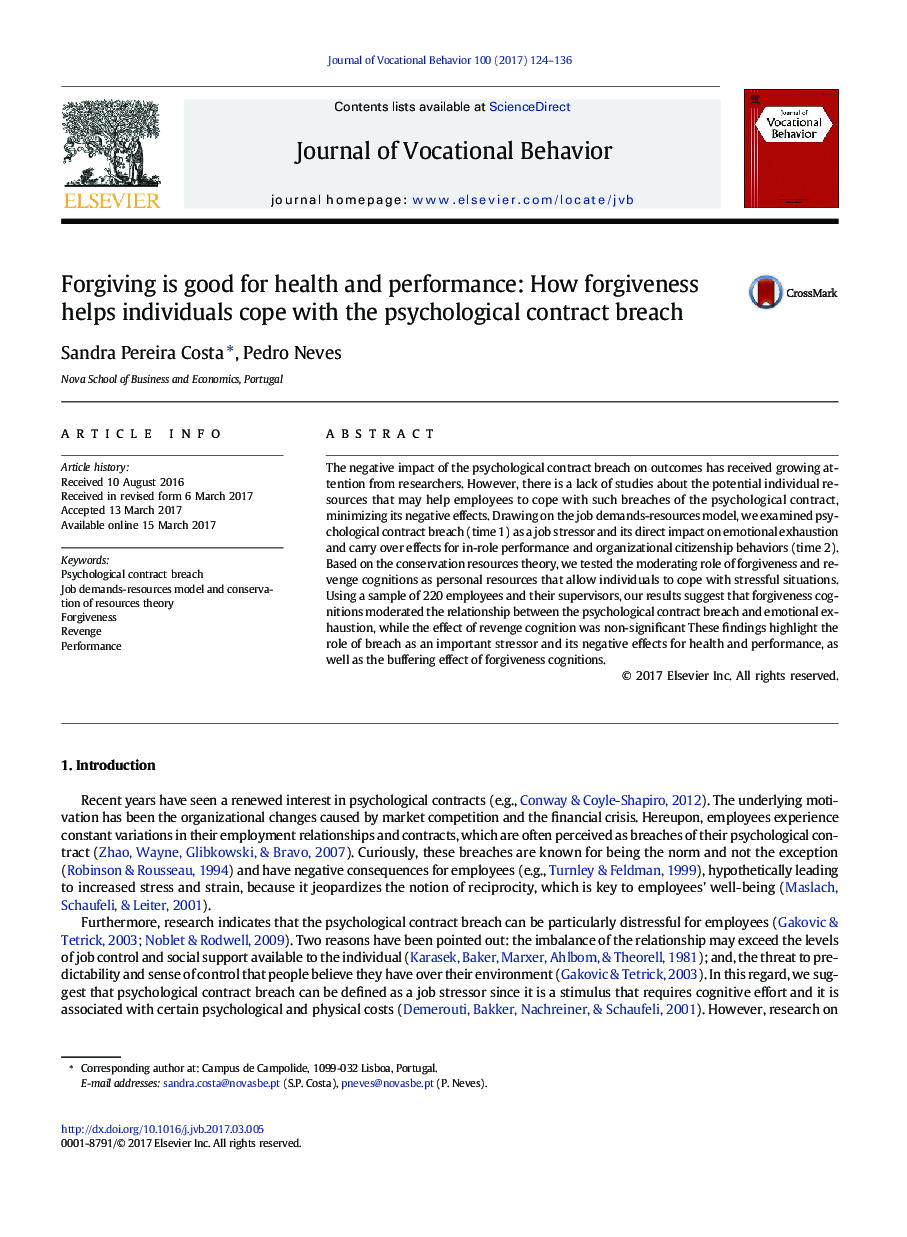| کد مقاله | کد نشریه | سال انتشار | مقاله انگلیسی | نسخه تمام متن |
|---|---|---|---|---|
| 5035122 | 1471800 | 2017 | 13 صفحه PDF | دانلود رایگان |
- Emotional exhaustion mediates the breach-performance relationships.
- Forgiveness moderates the relationship between breach and emotional exhaustion.
- The moderating effect spreads to the indirect relationships of breach to outcomes.
The negative impact of the psychological contract breach on outcomes has received growing attention from researchers. However, there is a lack of studies about the potential individual resources that may help employees to cope with such breaches of the psychological contract, minimizing its negative effects. Drawing on the job demands-resources model, we examined psychological contract breach (time 1) as a job stressor and its direct impact on emotional exhaustion and carry over effects for in-role performance and organizational citizenship behaviors (time 2). Based on the conservation resources theory, we tested the moderating role of forgiveness and revenge cognitions as personal resources that allow individuals to cope with stressful situations. Using a sample of 220 employees and their supervisors, our results suggest that forgiveness cognitions moderated the relationship between the psychological contract breach and emotional exhaustion, while the effect of revenge cognition was non-significant These findings highlight the role of breach as an important stressor and its negative effects for health and performance, as well as the buffering effect of forgiveness cognitions.
Journal: Journal of Vocational Behavior - Volume 100, June 2017, Pages 124-136
